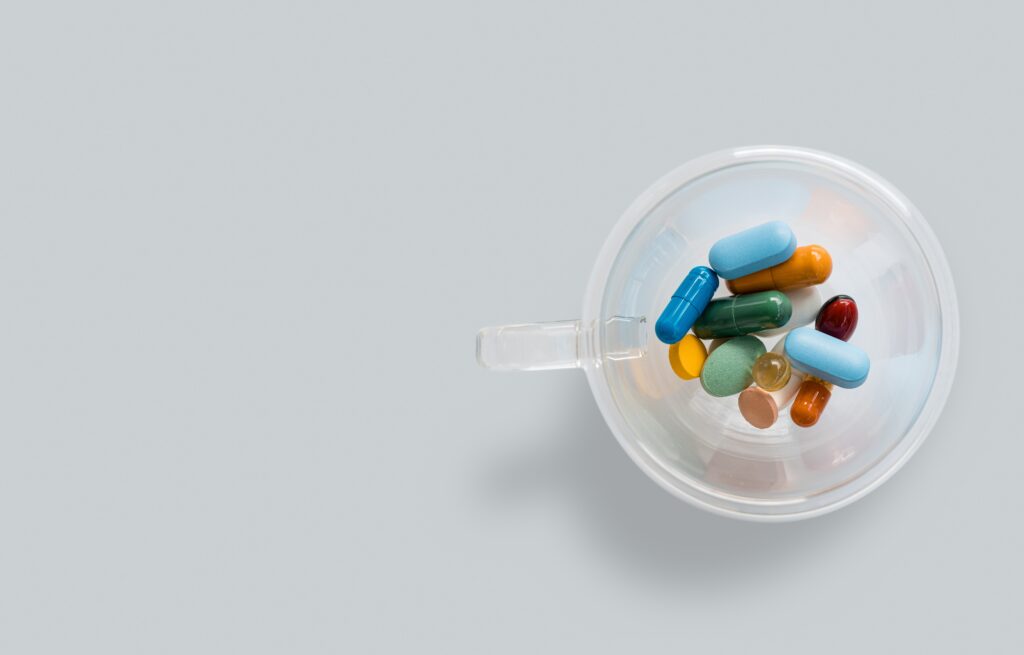Story by Abigail Woods
Do you take your vitamins as a pill? A gummy? Do you make sure you get it in your fruits and veggies? No matter how you take them, vitamins are essential to your health.
According to Merriam-Webster, the definition of vitamin is “any of various organic substances that are essential in minute quantities to the nutrition of most animals and some plants, act especially as coenzymes and precursors of coenzymes in the regulation of metabolic processes but do not provide energy or serve as building units, and are present in natural foodstuffs or sometimes produced within the body.”
That’s a lot of words to say that a vitamin is something required for life that we, in most cases, are unable to produce in the body. The only way to acquire many of the vitamins we need is through consumption of animal and plant foods.
Vitamins and supplements are made in four different grades, according to Terry Wingo, RPh, pharmaceutical, medical, food and research.
“The vast majority of nutrient products sold are food grade because they are the cheapest to manufacture and often require no testing,” Wingo, who is a pharmacist at Madison Drugs in Huntsville, said.
The food-grade vitamins often have inactive forms of the labeled ingredient and may include binders or fillers that could interfere with activity. More often than not, the majority of online products are food grade such as mail order, multilevel and market products.
Because of the way food is produced today, many of the nutrients we take in are rich in calories, but lacking sources for active forms of vitamins. Our bodies also require other nutrients like minerals, which, according to Wingo, are not easily balanced from commercial food sources.
COVID-19’s prevalence in the United States is going on a year now, and people have turned to vitamins and supplements to protect them from the virus and strengthen their immune capacity.
“The top three nutrients needed to maintain immune response are vitamin C, vitamin D3, and zinc,” Wingo said.
Vitamin D3
Vitamin D3 has “broad implications for immunity with optimal levels being associated with lower cancer risks as well as maintaining our bodies’ antiviral response,” Wingo said.
Vitamin D3 is a form of Vitamin D that you can take in naturally through foods or sunlight.
“Vitamin D isn’t found in many foods, but you can get it from fortified milk, fortified cereal and fatty fish such as salmon, mackerel and sardines,” said a report by the Mayo Clinic. “The amount of vitamin D your skin makes depends on many factors, including the time of day, season, latitude and your skin pigmentation. . . Many older adults don’t get regular exposure to sunlight and have trouble absorbing vitamin D, so taking a multivitamin with vitamin D will likely help improve bone health.”
A study for the Royal College of Physicians Clinic Medical Journal discussed how Vitamin D could improve a patient’s response to the coronavirus. COVID-19 responses and outcomes are determined by a number of pre-existing factors, including whether the patient has pneumonia, severe acute respiratory distress syndrome, myocarditis and more.
In other words, is there inflammation? Vitamin D is known to counteract inflammation, the study said.
“The fatality rate was high in vitamin D deficient (21% vs 3.1%),” said a study conducted by researchers at M.L.B. Medical College. “Vitamin D level is markedly low in severe COVID-19 patients. Inflammatory response is high in vitamin D deficient COVID-19 patients. This all translates into increased mortality in vitamin D deficient COVID-19 patients.”
Of course, this is a novel virus and researchers are still learning new information.
While the Mayo Clinic said that there is not enough information to definitively say that vitamin D can help prevent COVID-19, it also said that there have been studies that show that those who are vitamin D deficient may be more prone to contracting the virus.
Vitamin C
Vitamin C is another one of those vitamins that you can take in through food. Particularly citrus. Grab an orange and soak in that vitamin C.
Vitamin C stabilizes immune response by multiple mechanisms and is required for cross-collagen linkage, aka tissue repair. Americans eat a lot of sugar, specifically processed sugar, and Wingo said that the intake of sugars impairs vitamin C transport and reduces white blood cell activity.
The Mayo Clinic said that most Americans can take in enough vitamin C through healthy-eating habits.
Zinc:
As for zinc, it is the second most depleted mineral under stress and is part of over 200 different enzyme pathways, Wingo said.
He further explained that zinc helps with viral immunity, thyroid transport and binding and the activation of testosterone receptors.
Zinc is found in all kinds of common food including meat, shellfish, legumes (like chickpeas), seeds, nuts and dairy, among others.
While there are countless vitamins on the market, and all are technically required, many of the products sold in the supplement category are not necessary.
According to Harvard Health Publishing in an article titled, “Can supplements help boost your immune system?”, people are encouraged to wash their hands, maintain a healthy/balanced lifestyle, manage stress and get vaccinated.
These strategies, combined with the consumption of vitamins, prove to keep a person both happy and healthy.
